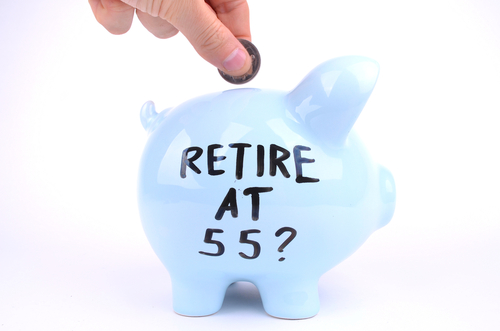How to
How to retire early

The prospect of retiring early will seem alien to many; an indulgence only obtainable by the most extravagantly remunerated investment bankers, lottery winners and the nobility.
However, starting retirement a few years early can be within reach. Here are a few suggestions that could help you leave the working world early.
- Determine your retirement budget
If you wish to retire early, the first logical step is to calculate just how much money you will need when you retire. This should include both expected income and monthly outgoings. You probably won’t need the same level of income – your mortgage probably will have been paid off, for example, but you should consider holding some rainy day cash. You’ll also need to reflect on how long you’ll live. Adrian Lowcock, head of investing at AXA Wealth, says that people on average underestimate their own life expectancy by about a decade – so bear this in mind!
- Load your pension
One of the keys to early retirement is having a pension sizeable enough to cover your living expenses when you give up work, in lieu of a regular income. Thus, if your employer provides you with a private pension, you should capitalise to the full. Your employer contributes a basic monthly sum to the pension – and so should you. Earmark a chunk of your regular income for your private pension – and remember that the more you contribute, the more your employer contributes (although this capped at around 15 per cent).
Making a significant one-off contribution to a pension makes a lot of sense, too. Current pension rules entitle you to tax relief (20 per cent for basic rate payers; 40 per cent for higher rate payers) on up to £40,000 of pension contributions annually. Thus, any money you don’t end up spending, saving or investing elsewhere in a year can go straight into your pension.
- Consolidate your pensions
According to Paul Evans of Suffolk Life, the average retiree has money held in 4 separate pensions by the time they leave work. If you’re not sure how many pensions you have contributed to during your career, find out – and then, consolidate them into a single pension. It’s not only convenient having all your pension funds in a single, unified place; moving all your pensions into a single place ensures you have the maximum possible retirement income available to you, and means your investments are managed coherently.
- Keep on contributin’
It’s also important to remember that once you’re retired, you needn’t stop contributing to your pension. Furthermore, the new pension reforms mean that as of next April, you can keep contributing up to £10,000 into your pension annually. These deposits will also be supplemented by tax relief (20 per cent for basic rate payers; 40 per cent for higher). This option is especially sensible if you choose to semi-retire.
Isas are now a potent weapon in your retirement income arsenal. Although there is no tax relief on contributions, all income generated from an Isa is tax-free. Investors can now squirrel away £15,000 per year. Assuming 5% growth per year, investors saving the maximum into their Isa each year could build a pot of over £500,000 within 20 years.
Compound interest is your friend. The earlier you start saving, the sooner you can achieve financial freedom.